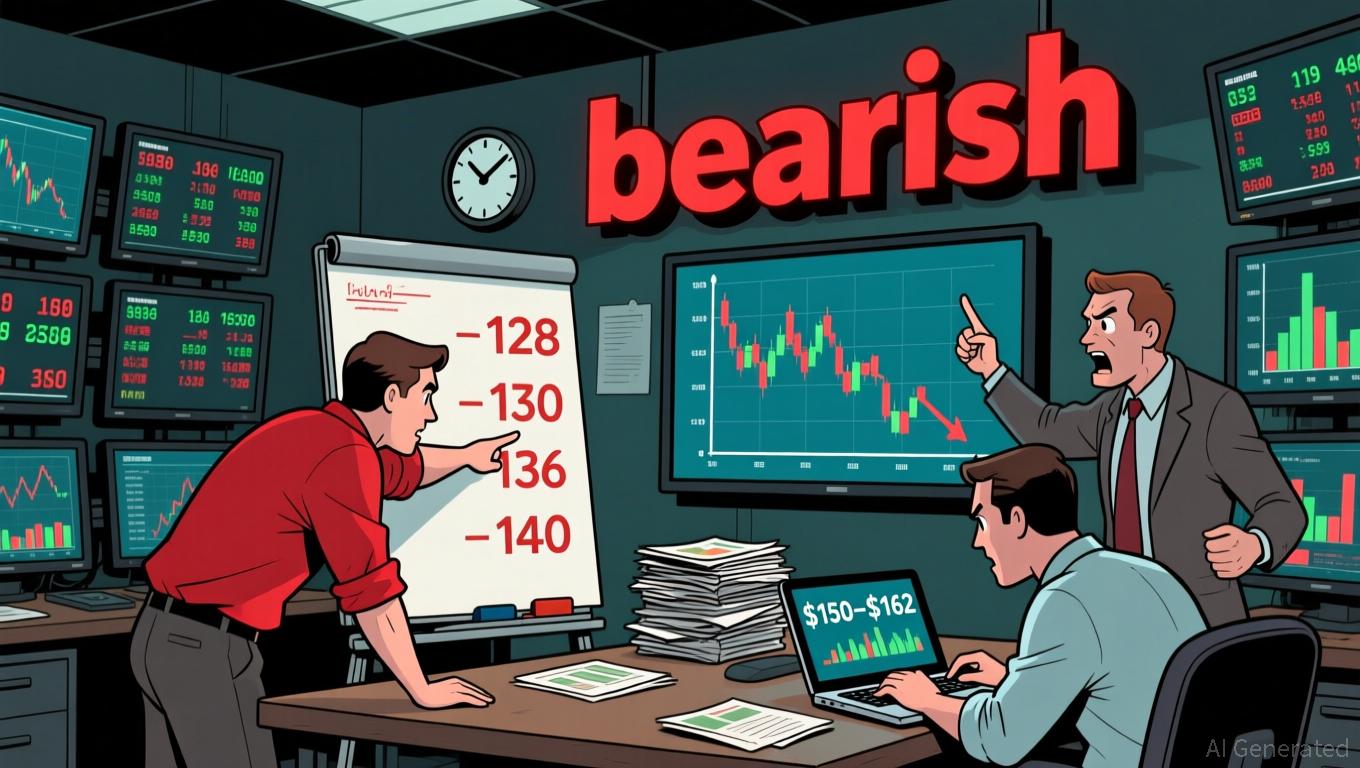Cloudflare Outage Sheds Light on the Inherent Dangers of Relying on Centralized Internet Systems
- Cloudflare's 2025 outage disrupted major platforms like ChatGPT and X due to a large config file. - The incident exposed vulnerabilities in centralized internet infrastructure, causing a 4% stock drop. - Experts warn of systemic risks from over-reliance on few providers, urging diversified infrastructure. - Financial services and crypto platforms faced downtime, highlighting the need for redundancy.
On November 18, 2025, Cloudflare, a key provider of internet infrastructure, experienced a significant worldwide outage that disrupted major platforms such as OpenAI's ChatGPT, the social media platform X, and numerous cryptocurrency sites. The disruption was triggered by an unusually large configuration file used to manage threat traffic,
This event revealed the delicate nature of global web traffic systems, as Cloudflare supports more than 20% of all websites worldwide, according to W3Techs.
Cloudflare
This situation is reminiscent of recent outages at major tech providers like Amazon Web Services (AWS) and Microsoft Azure, highlighting the dangers of relying too heavily on a few infrastructure giants. Graeme Stewart, who leads the public sector at Check Point, pointed out that while large-scale platforms offer efficiency and scalability, their size also increases the risk of widespread failures. "If one layer collapses, the whole system is affected," he remarked,

Cloudflare’s stock, which had climbed over 80% in 2025, came under renewed scrutiny after the outage, dropping to $193.15 from a recent high of $260. Despite the company’s strong financial performance—including a 31% year-over-year revenue increase in the latest quarter—investors remain cautious about the threat of repeated infrastructure failures. The incident also reignited discussions about the trade-off between the efficiency of centralization and the resilience offered by decentralization in internet systems,
As
Disclaimer: The content of this article solely reflects the author's opinion and does not represent the platform in any capacity. This article is not intended to serve as a reference for making investment decisions.
You may also like
Eightco’s WLD Staking Jumps 3% as Company Moves Focus from Biometric Disputes to Blockchain Infrastructure
- Eightco's 1.3B WLD stake drove a 3% price surge as the firm shifts focus from biometric data to blockchain infrastructure projects. - The disclosure highlights institutional crypto ownership trends while distancing from WLD's controversial data monetization model. - Intuit's $100M+ OpenAI partnership boosted shares 3.4% by integrating AI financial tools into ChatGPT and enterprise platforms. - The deal underscores AI-driven fintech innovation, positioning Intuit against competitors expanding generative A

Cardano News Update: Hoskinson's Wager Against Major Holder Sell-Offs—Is ADA's $0.50 Floor at Risk?
- Cardano (ADA) stabilized above $0.50 amid whale selling and Charles Hoskinson's $200M investment in Trump-linked American Bitcoin . - Over 4 million ADA dumped weekly by large holders, signaling volatility as Hoskinson defends Bitcoin-AI synergy potential. - ADA's 41% lower trading volume and 3% open interest drop reflect reduced speculation despite technical support at $0.50. - Whale activity and stagnant $240M TVL highlight market skepticism, with Hoskinson attributing DeFi challenges to low user engag

Solana News Today: Solana Challenges $130 Support Level: Will ETF Inflows Offset Negative Market Trends?
- Solana (SOL) tests $130 support as price falls below $140, with technical indicators signaling bearish consolidation below key moving averages and resistance at $136. - Institutional adoption accelerates via VanEck's U.S. spot Solana ETF, managed by SOL Strategies through its Orangefin validator node, joining Bitwise and Grayscale in attracting $382M inflows. - Price remains range-bound near $155 amid mixed signals: ETF inflows provide partial support, but RSI/MACD remain bearish, with $162 breakout pote

Ethereum Updates Today: U.S. Paves Way for Banks to Offer Crypto Services Following Change in Blockchain Fee Regulations
- U.S. banks can now hold crypto on balance sheets to pay blockchain fees, per OCC guidance, easing crypto service integration. - Policy clarifies permissible use of assets like ETH for gas fees, requiring "reasonable" reserves and compliance with safety standards. - Trump-era crypto-friendly reforms, including the GENIUS Act, aim to position the U.S. as a global crypto innovation leader. - Major banks accelerate crypto adoption, expanding custody partnerships and stablecoin projects amid regulatory clarit
